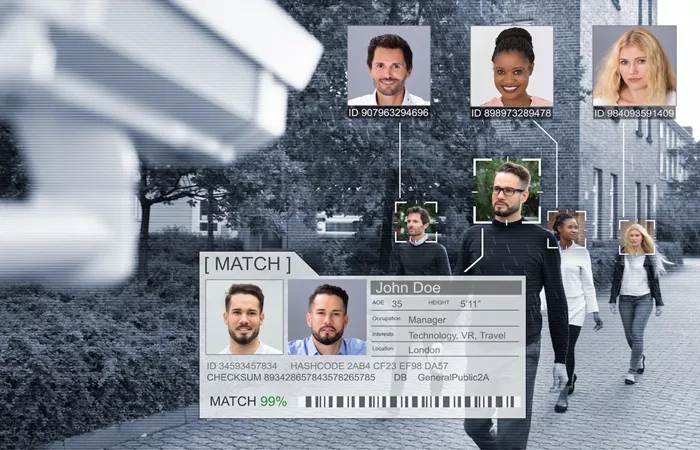Facial recognition technology has become a ubiquitous part of daily life, enabling functions such as unlocking phones, mobile payments, and accessing residential complexes. While it enhances convenience and operational efficiency, growing concerns arise from improper uses like “mandatory face scanning,” unauthorized data capture, and potential abuses of facial data, warranting heightened vigilance.
Key Risks of Facial Data Misuse
Forced Data Collection
Some institutions mandate facial recognition as the sole verification method, violating the principle of data necessity. Businesses and organizations often collect facial data excessively through coercion or bundling services, far beyond legitimate needs, risking illegal data acquisition. For example, users may be compelled to provide facial scans for basic services, with no alternative verification options available.
Inappropriate Data Storage and Transmission
Facial images, especially high-precision ones, contain sensitive biometric details like iris and lip prints. Non-essential storage or transmission of such data—particularly when linked to personal identity information—creates significant security risks. Combined with behavioral and social data, facial information can be used to reconstruct individuals’ social networks, escalating privacy and security threats.
Illegal Exploitation of Facial Data
The exponential growth in facial data holdings has led to rising incidents of identity-related crimes. Criminals have stolen facial information to impersonate users in account registration, identity verification, payments, and loans, causing financial losses. In severe cases, illegally obtained facial data has been used for money laundering, organized crime, or even threats to national security, underscoring the need for strict safeguards.
National Security Authorities’ Recommendations
Facial information is a critical component of personal identity, and its illegal use crosses legal boundaries. Ensuring facial data security requires a multi-layered protection framework:
Strengthening Legal Regulations
China’s Data Security Law, Cybersecurity Law, and Regulations on Network Data Security Management provide a legal foundation for facial recognition governance. The Security Management Measures for Facial Recognition Technology Applications further clarifies application boundaries and rules, refine the requirements of the higher-level laws,enhancing enforceability. These regulations aim to standardize technological use, protect personal information, and prevent abuses.
Enhancing Technical Safeguards
Access Control: Implement strict authorization mechanisms and regular security audits for facial recognition systems.
Data Minimization: Collect only necessary facial data and avoid over-collection.
Encryption and Deletion: Use advanced encryption for data storage and promptly delete obsolete facial data to reduce leakage risks.
Network Defense: Deploy firewalls and intrusion detection systems to protect against cyberattacks.
Individual Preventive Measures
Selective Consent: Adopt a “non-essential, no-provide” approach, verifying the legitimacy and purpose of facial data requests before authorization.
Platform Verification: Use only official and secure platforms to minimize data exposure.
Legal Remedies: Individuals should seek legal help immediately if their facial information is misused, safeguarding their rights through judicial channels.
Balancing Innovation and Security
While facial recognition drives technological advancement and convenience, its risks highlight the need for a balanced approach. Governments, enterprises, and individuals must collaborate to enforce regulations, upgrade technical protections, and raise awareness, ensuring that facial recognition technology develops safely and responsibly. As biometric applications expand, prioritizing security will be crucial to maintaining public trust and national data sovereignty.
Related topics:

